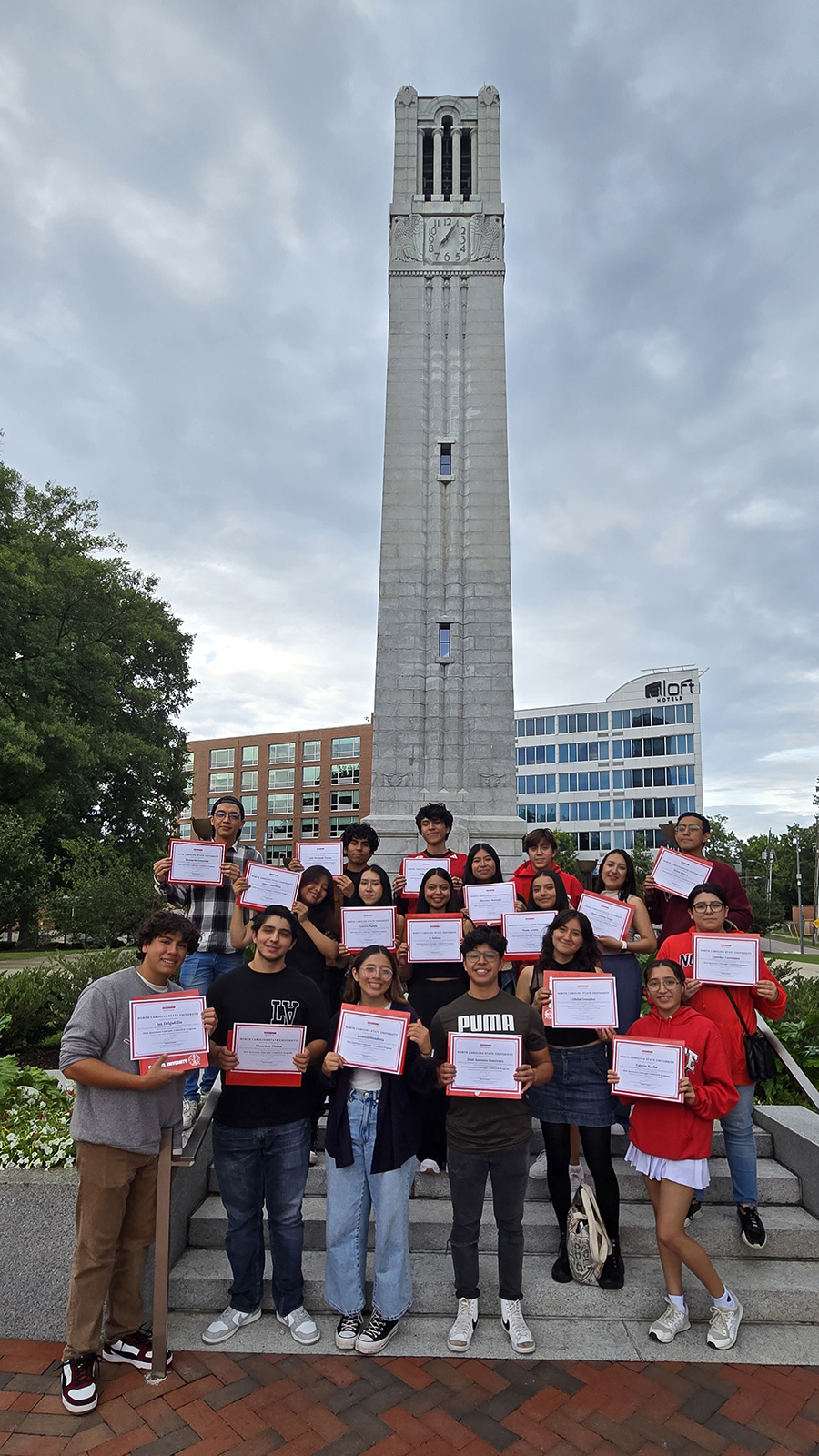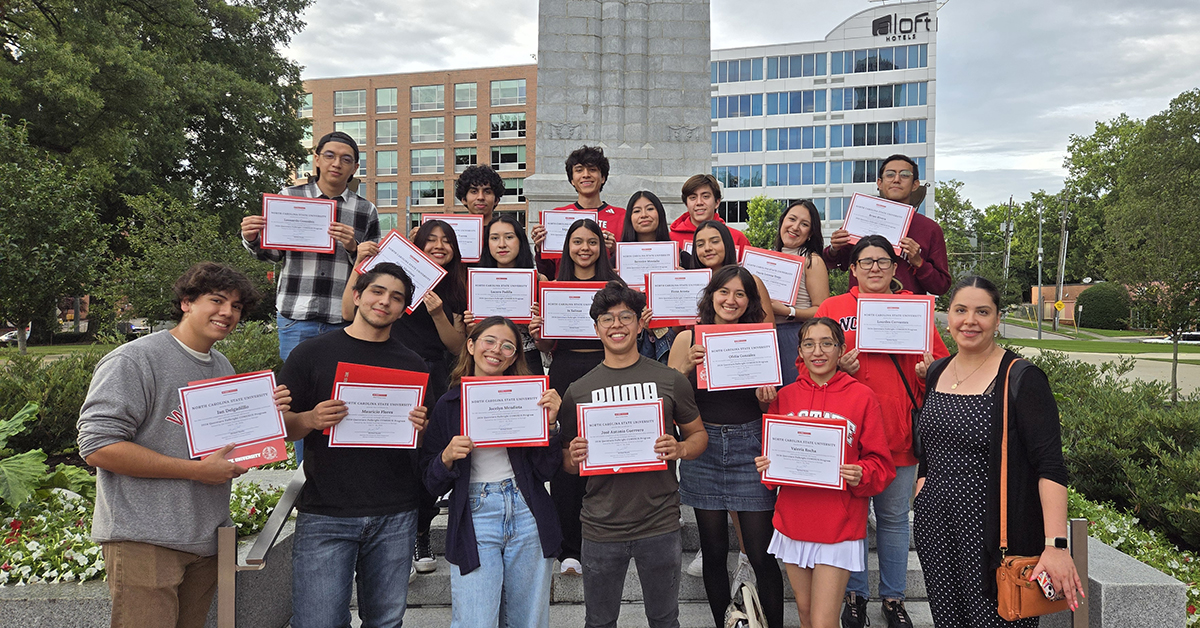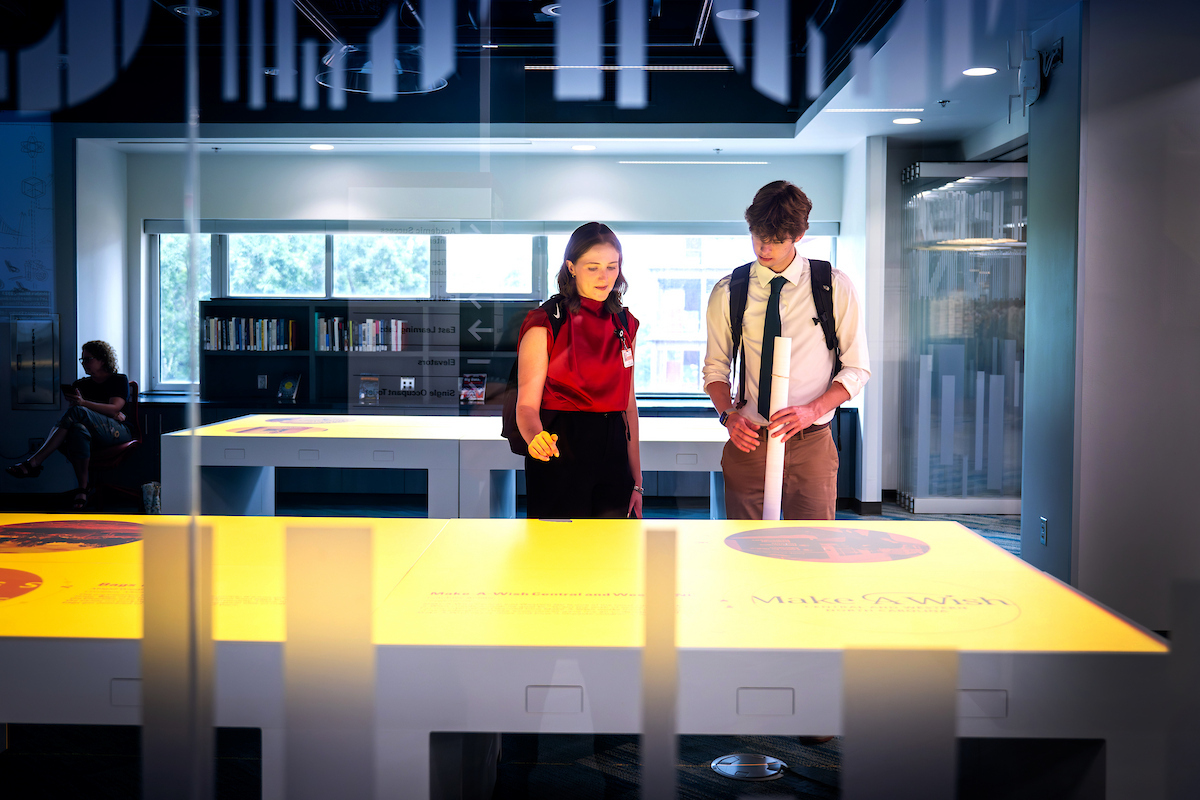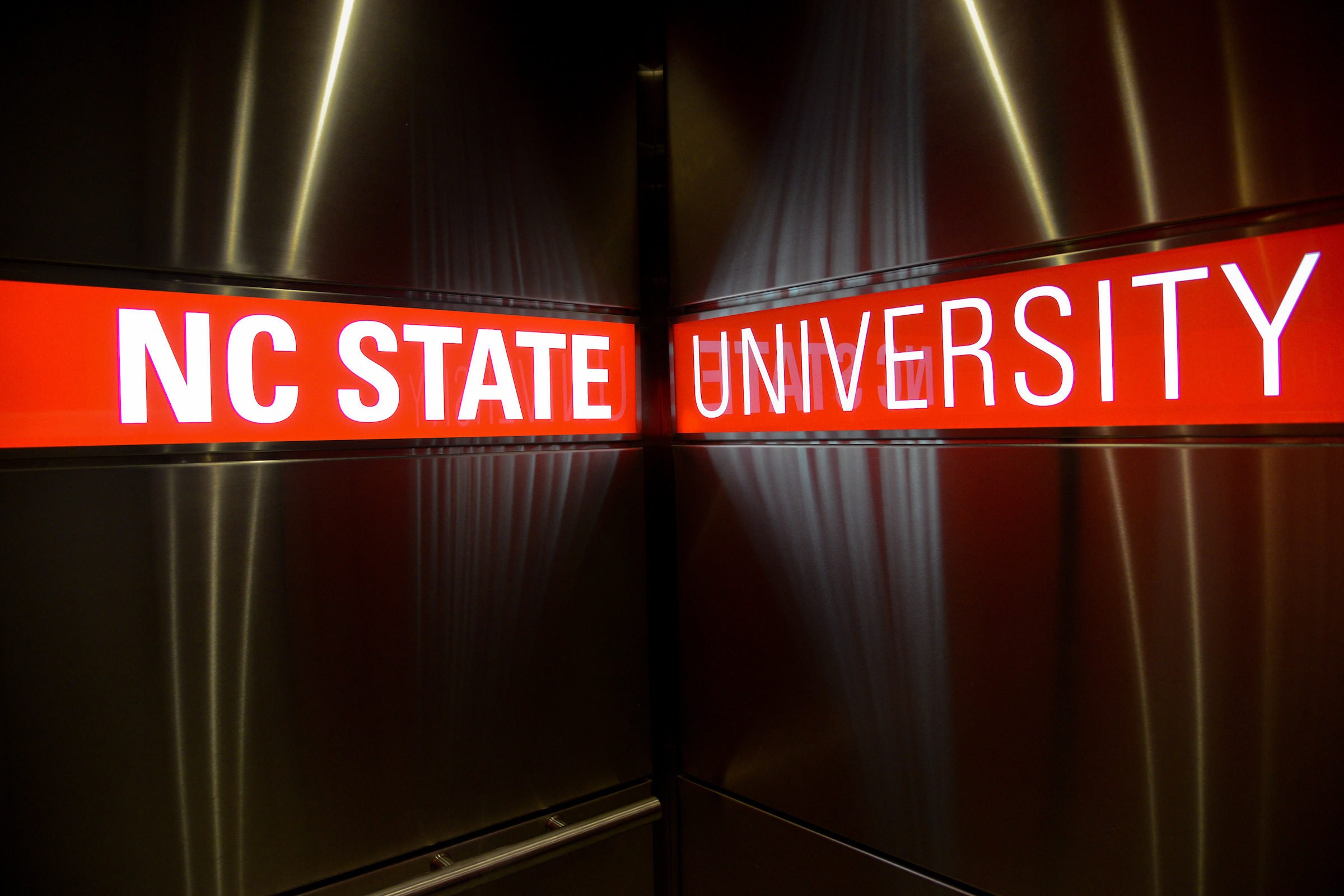NC State University’s Global Training Initiative (GTI) hosted 19 undergraduate students from various universities throughout Querétaro, Mexico this summer for a short-term certificate program on Innovation and Entrepreneurship.
The students were selected as part of the Bicentennial Ambassador’s program, a joint effort between the U.S. Embassy in Mexico and the state government of Querétaro, celebrating 200 years of diplomatic relations between Mexico and the United States.
The hybrid program started online in mid-June and students arrived in early July, spending the next three weeks finishing their coursework and group projects as well as participating in additional workshops covering cross-cultural competence, leadership, and other academic topics.
Students worked in small groups to create new businesses and launch websites for them. Most of them were STEM majors such as engineers and physical therapists, as well as several artists, with no formal business training. Over the course of the one-month program, they learned and executed the Lean Startup method of creating new businesses. The teams started with conducting customer-centric market research to ensure they were solving the pain points actual customers were experiencing. They also ideated solutions and built a Minimum Viable Product (MVP), which they tested with customers through various channels: a company website, social media platforms, and both in-person and Zoom interviews.
“One of the most exciting things for me is to see the students choosing to solve big problems that have deep societal value,” said David McNeill, the program instructor and senior associate director of the Global Training Initiative.
The teams came up with viable solutions to mass transportation issues using Artificial Intelligence, helping women with incontinence issues discuss their problems and learn a physical therapy solution, and increasing the pathways to higher education for young people from rural areas of Mexico. Their final presentations included a pitch session where they explained how they completed the process from start to finish.
“They now have the tools and methods to go home and build these companies or use these new skills to innovate with other pain points they and their customers will encounter in the future,” McNeill added.


Program participants also got a chance to see the world-class resources and programs that NC State provides to foster a culture of innovation on campus. Students also visited neighboring universities like Duke and UNC-Chapel Hill.
The Bicentennial Ambassador’s program is funded by the government of Querétaro, the U.S. Embassy in Mexico, and support from COMEXUS (Mexico-United States Commission for Educational and Cultural Exchange)
- Categories:



